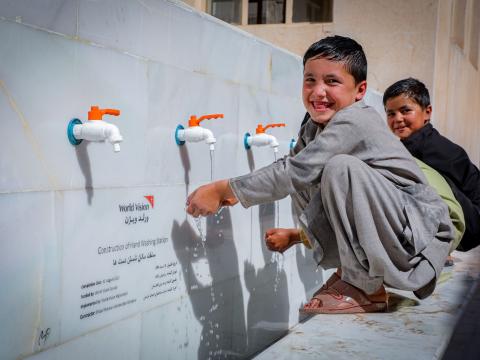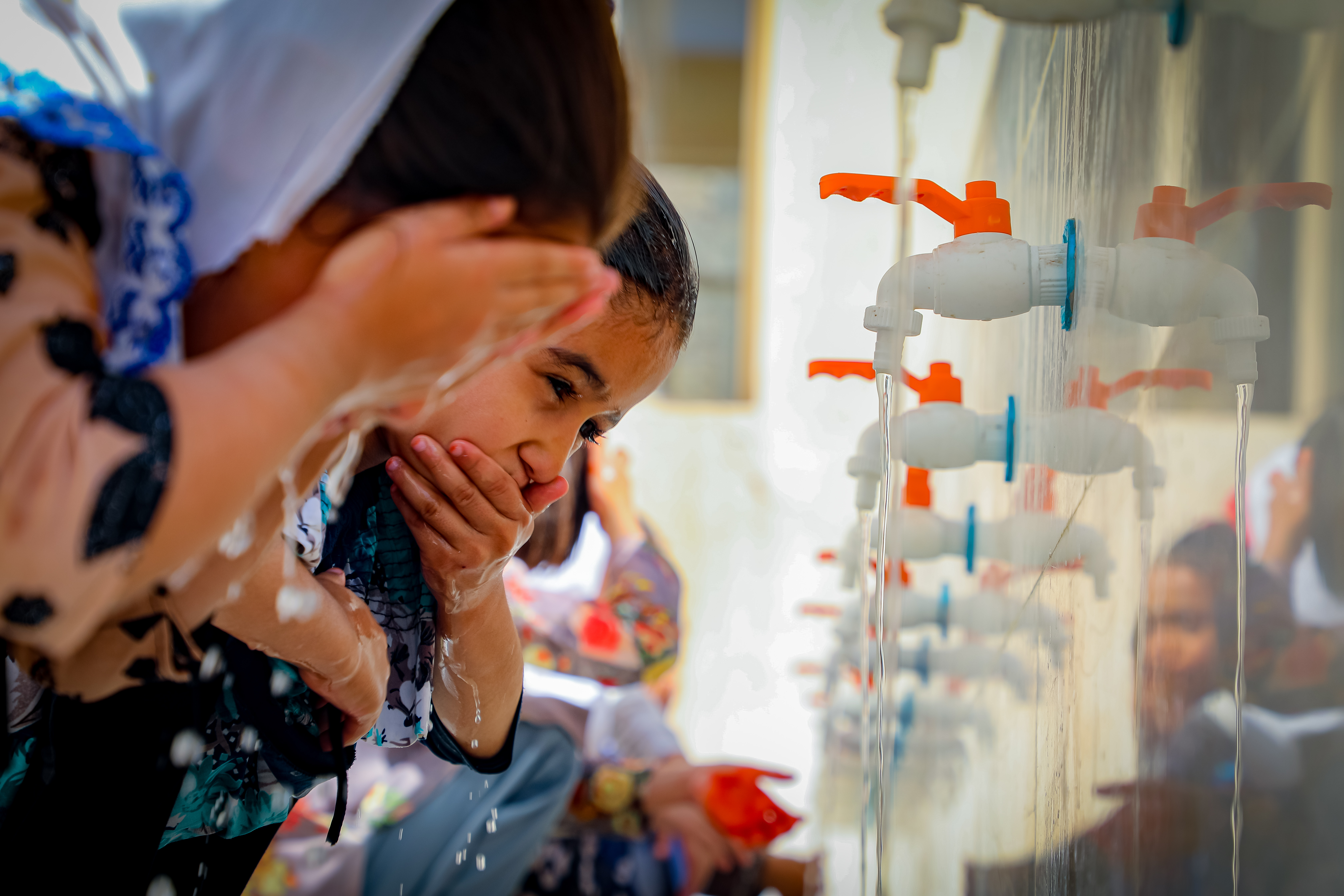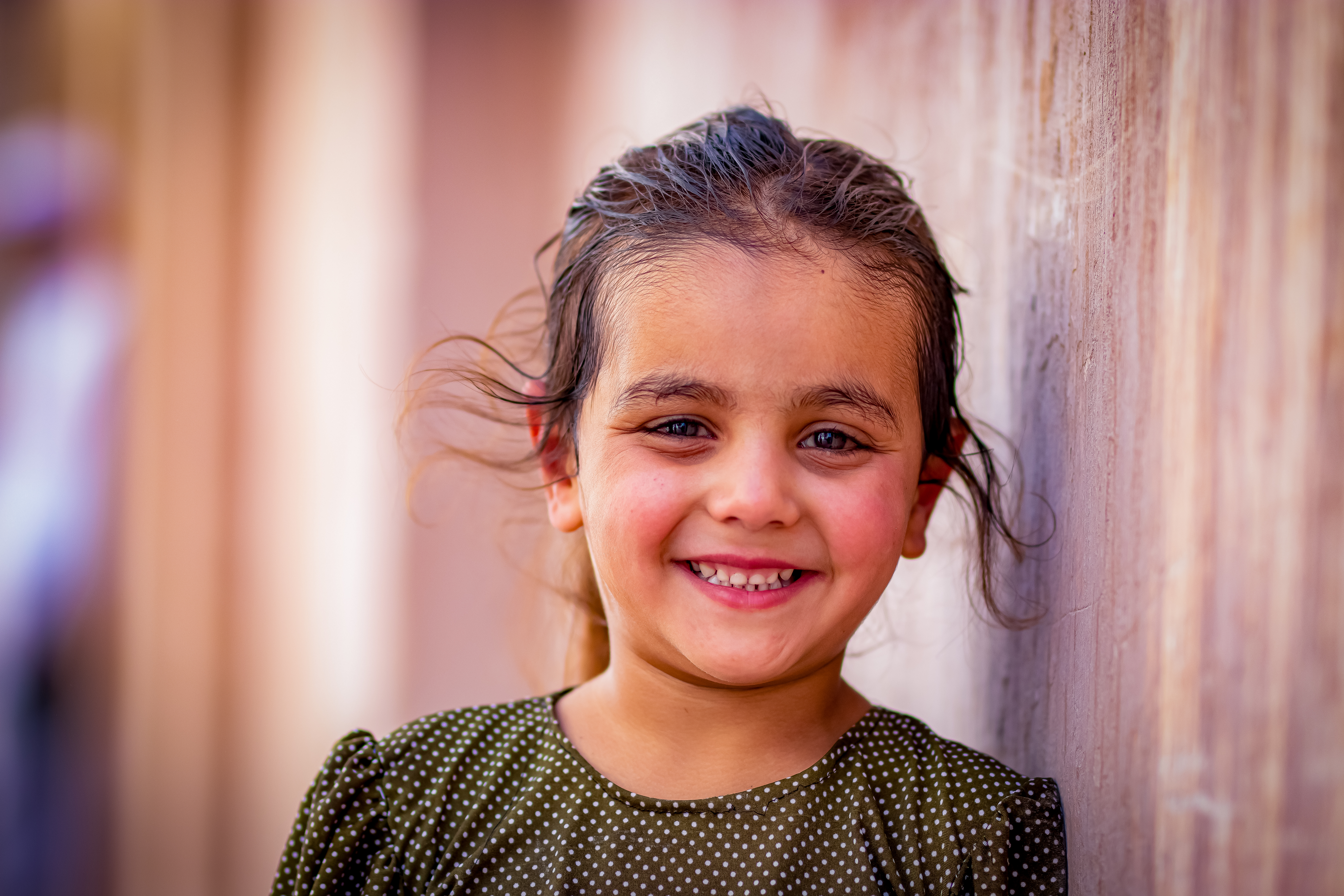Better Schooling by WASH Facilities

Milad, 12, is a student of fifth grade, living in peri urban area of Herat city. His school had insufficient WASH infrastructures such as potable water and sanitation facilities. “The toilets were not proper and enough for all students. There was no water taps to wash our hands after toilet,” says Milad. Water in Saifi School –where Milad is studying, was supplied from a hand pump well, often salty, transmitting all kinds of water-borne diseases to the students. “There was a hand pump well in the school. When we needed to drink water or wash our hands, one student was pumping and the other was using water. The well water was salty and inconvenient to drink. I did not use the well until I had to. Whenever I was very thirsty and had to drink from well water, I would get sick the next day. Diarrhea was my most common problem,” he added.
There are many schools with poor water quality, sanitation and hygiene facilities in Afghanistan. Students have to bring drinking water from their homes. There are hand-pump wells in some schools that students have to help each other to pump the water for washing hands. Students' parents always complained about their children's illness and worried about their children's health. The government did not have the financial capacity to dig wells and build a washing station. “My parents will no more worry about my health and students will no longer get sick from water,” explains Milad.

Addressing the WASH challenges, with a fund from World Vision Canada, World Vision Afghanistan through Fragile Context Programming Approach (FCPA) project has constructed two latrine blocks, four hand-washing stations and two solar-powered water supply networks in peri-urban areas of Herat. To ensure accessibility of students to potable water, the quality of the water was tested to confirm that the water is free of any germs and chemical materials.
Due to COVID-19 pandemic, Milad school was closed; however, he got surprised when he returned to school, “The water is clean, not salty. I can easily wash my hands and drink the water whenever I need. There are many clean toilets with water taps now. I cannot believe it,” says Milad. He will not stay in line for a long time to use the toilet anymore, “Now I can retake my class as soon.”
“I will advise my classmates to take care of the water taps and do not waste the water. If the water taps got damaged, including our parents and government nobody have no money to repair them as they could not make them during all last years. I know the value of these facilities because I used to be thirsty whole the day in school before,” says Milad, a champion to deliver the message.
Another student, Karina, 8, is in the second grade of Espina Adi High School of Herat city. She remembers the time that she was used to use the hand pump well water to wash her hands with difficult. “It was so difficult to pump the well. Usually I was asking others to pump but sometimes there was nobody to help me pumping. My mother taught me to wash hands regularly. I could not do my mom’s advice most of the times,” says Karina and continued, “It is so easy and the water is so clean. I can promise my mom to wash my hands every time now.”
The poor hygiene and sanitation conditions contribute to the spread of diarrhea diseases, which disproportionately affect children who have less developed immune systems. In addition to that, water was not available in all seasons and had never been tested or treated. Based on the recent assessment done by World Vision, most of the schools fulfilled the sphere standard of having at least three liters of water per pupil per day for drinking and hand washing.
Vision Afghanistan also conducts hygiene promotion in schools and communities encouraging children and their parents on personal and environmental hygiene as well as preserving the WASH facilities inside their communities.
